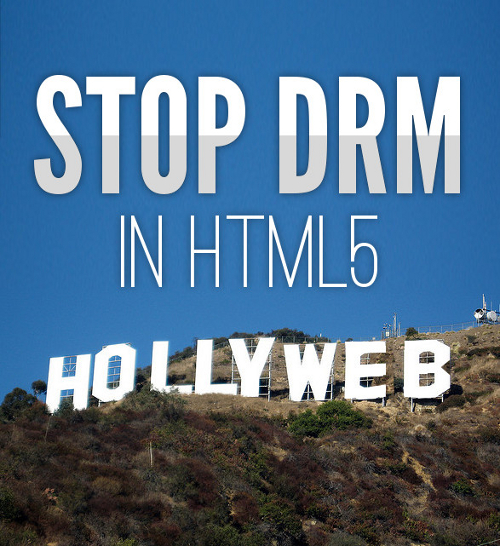Hollyweb? Tell the W3C no thanks!
According to its website, the World Wide Web Consortium (W3C) is an international community where its member organisations, a full-time staff and the public work together to develop web standards, whose mission is to lead the Web to its full potential.
These standards have so far been characterised by complete openness: all web standards are open standards.
However, these open standards are now under attack.
There’s a proposal currently before the W3C’s HTML5 Working Group to build DRM (aka Digital Restrictions Management by openistas. Ed.) into the next generation of core web standards. The proposal is called Encrypted Media Extensions or EME.
The people behind EME are the major media companies; having failed to push such illiberal measures as SOPA and PIPA through the US legislature, the Big Media moguls are now going through non-governmental channels to try to sneak digital restrictions into every interaction people have online.

Netflix, Google, Microsoft and the BBC are all rallying behind this ludicrous proposal, which – as stated above – flies in the face of the W3C’s mission.
However, a petition has already been set up to oppose the addition of DRM to HTML5 and 3rd May 2013 has been designated the International Day Against DRM.
The petition page is also available in French.
I’d urge everyone interested in open standards and all other forms of openness – such as open data and open source – to sign the petition; I’ve already done so.
This article is reposted with some minor amendments from Bristol Wireless.